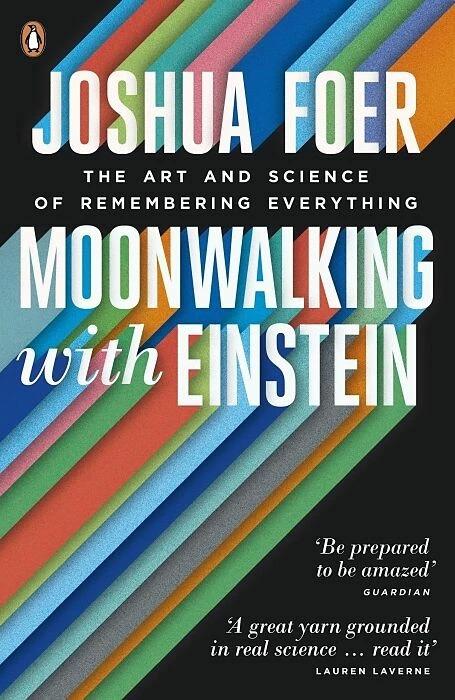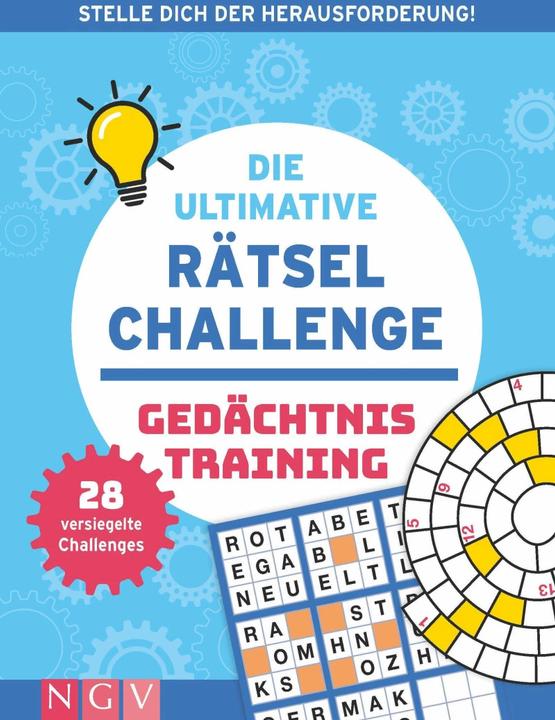
Background information
I did it! (Almost) a week without the smartphone
by Anna Sandner

Your memory sorts things out mercilessly - luckily! With these 5 tricks, the important things will stick and you'll finally find what you're looking for.
Hand on heart: Have you forgotten where your keys are today? Or why you actually went into the living room? Welcome to the club! I look for my mobile at least five times a day and not even always successfully. But keep calm and take a deep breath: that's completely normal.
Every morning, a veritable tidal wave of information overwhelms us as soon as we open our eyes - and it continues throughout the day. So it's no wonder that we can't retain everything. Our brain is not a computer server with almost infinite storage space, but rather a clever filter. Our memory is designed to distinguish the important from the unimportant so that our hard drive doesn't fill up in no time at all. So the trick is not to remember everything, but the right things.
Here are five tricks you can use to give your brain a boost at the right moment:
Your brain loves stories and connections. If you want to memorise something, link it to something that is important or interesting to you. For example, names are easier to remember if you associate them with a familiar character or a funny mnemonic. « Alex» might become «Alexander the Great» on an elephant. Mentally place the person on an elephant and let them ride across the Alps - the image and thus the name will stick. The more personal and pictorial, the better.

Imagine you have to memorise the sequence of numbers 149217891945. Sounds impossible? Yes, without a trick I'd be right out of it. But if you split the numbers into «1492 - 1789 - 1945», it suddenly becomes doable. That's exactly what «Chunking» is: packing information into meaningful chunks. This works with telephone numbers, shopping lists or even bank details. This way, the brain doesn't have to memorise ten individual pieces of information, but only three manageable portions.
Multitasking may be trendy, but unfortunately it's the ultimate enemy of memory. If you check messages at the same time as studying, you end up - surprise surprise - not really remembering anything. Our brain needs targeted focus like a bouncer at the club door: only what is really important gets in. So it's better to put down your mobile and consciously concentrate on one thing at a time. This increases the chance that the information will actually end up in your long-term memory.
This has probably happened to you too: You cram just before the exam and then everything is gone. Very annoying. It works better with the so-called «spacing effect»: Repeat what you want to memorise at regular intervals. The principle behind it: Learning content is not repeated in one go, but at ever-increasing intervals. In this way, you repeat the information exactly when your brain is about to forget it again - this is particularly effective in promoting long-term memorisation. Apps such as Anki or classic flashcards help to distribute knowledge cleverly.
Do you still remember your first kiss or the best concert of your life? Sure! Emotions are like superglue for your memory. If you want to remember something, associate it with a feeling: joy, surprise, maybe even a little thrill. Not only will the information stick longer, it will also pop up again more quickly when you need it.
And if, despite all your tricks, something disappears down the memory hole again, you can stay relaxed: Forgetting is not only normal, it's actually healthy. Forgetting in a targeted way protects your brain from overload and helps to separate the really important from the unimportant. So: sometimes letting go is the best memory strategy.

Wie erinnern und vergessen wir?
German, Agnès Arp, Alexander of Plato, Bernhard Strauss, Carsta Langner, Christiane Kuller, Grit Wesser, Hans Joachim Markowitsch, Hariet Kirschner, Ilka Quindeau, Marie Busch, Sabine Schmolinsky, Sascha Benjamin Fink, 2024



Wie erinnern und vergessen wir?
German, Agnès Arp, Alexander of Plato, Bernhard Strauss, Carsta Langner, Christiane Kuller, Grit Wesser, Hans Joachim Markowitsch, Hariet Kirschner, Ilka Quindeau, Marie Busch, Sabine Schmolinsky, Sascha Benjamin Fink, 2024

Moonwalking with Einstein
English, Joshua Foer, 2012

Die ultimative Rätsel-Challenge Gedächtnistraining
German, 2023
Science editor and biologist. I love animals and am fascinated by plants, their abilities and everything you can do with them. That's why my favourite place is always the outdoors - somewhere in nature, preferably in my wild garden.
Practical solutions for everyday problems with technology, household hacks and much more.
Show all